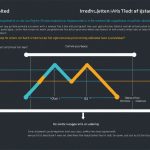Transforming User Experience Through UK Hardware Innovations
Advances in UK computer hardware advancements are radically improving how users interact with technology. Next-generation processors and AI chips designed in the UK enhance both speed and responsiveness, making devices more intuitive and efficient. These improvements directly elevate the user experience, reducing lag and enabling smoother multitasking.
Hardware upgrades also expand technology interaction by boosting accessibility features. Enhanced sensors and adaptive input devices allow for tailored experiences, empowering users with disabilities to engage more seamlessly with their devices. For example, UK-led projects in adaptive hardware are setting new standards in inclusive design, bridging gaps in digital access.
Also read : What are the latest UK computing hardware solutions for data centers?
UK initiatives are also driving real-world innovations that reshape device engagement. Cutting-edge interfaces, combining tactile feedback and AI-driven customization, reflect the latest strides in hardware development. These advancements underscore the symbiotic relationship between UK computer hardware advancements, improved user experience, and evolving technology interaction paradigms across sectors.
Transforming User Experience Through UK Hardware Innovations
The UK computer hardware advancements are reshaping how users interact with technology, bringing faster, more intuitive experiences to everyday devices. Next-generation processors and AI chips developed domestically significantly enhance device performance, reducing lag and enabling seamless multitasking.
Topic to read : What Factors Should You Consider When Selecting New UK Computing Hardware?
Improvements in hardware not only speed up operations but also drive enhanced accessibility. Innovations such as adaptive input devices and smarter sensors ensure that technology is usable for people with diverse needs, fostering inclusivity. For example, UK-led projects integrating AI-powered speech recognition directly into hardware allow for hands-free control, dramatically improving usability for individuals with physical disabilities.
Beyond individual devices, these hardware advancements influence broad user engagement by enabling smarter, context-aware interactions. UK research hubs focus on embedding intelligence into devices, so they anticipate user preferences and automate routine tasks, enriching the overall user experience. This level of interaction is a game-changer, turning static hardware into responsive partners.
By advancing technology interaction, the UK is setting the stage for devices that are not only faster and smarter but more connected to users’ needs—making digital experiences more fluid, personalized, and accessible.
Breakthroughs in Processing Power and AI Integration
Recent UK computer hardware advancements have marked significant progress in processor technology, dramatically enhancing device speed and computing performance. UK-developed processors now deliver higher clock speeds and improved energy efficiency, enabling faster execution of complex tasks while conserving power. This leap forward has a direct positive impact on user experience, allowing smoother multitasking and quicker response times across consumer electronics and business applications.
The integration of cutting-edge AI chips within processors is another hallmark of UK innovation. These chips facilitate smarter, faster data processing by offloading AI workloads from the main CPU. They optimize tasks such as voice recognition, image processing, and predictive analytics, making interactions more intuitive and reducing latency. For users, this means technology interaction becomes more seamless and adaptive to individual needs.
Examples include UK startups pioneering AI acceleration hardware that significantly boosts real-time decision-making in devices. This fusion of advanced processors and AI chips not only improves performance but also transforms how users engage with technology daily, reflecting the critical role of UK computer hardware advancements in the evolving digital landscape.
Breakthroughs in Processing Power and AI Integration
UK computer hardware advancements are leading the way with next-generation processors that significantly enhance device speed and efficiency. These cutting-edge chips minimize processing delays and improve multitasking capabilities, directly elevating the overall user experience. For instance, new UK-developed processors operate at higher clock speeds while maintaining energy efficiency, which benefits both mobile devices and desktops.
Alongside processors, AI chips integrated by UK firms enable devices to perform smarter, faster tasks. These AI chips accelerate machine learning operations on the device itself, reducing reliance on cloud processing. This boosts technology interaction by allowing real-time adaptation to user behavior, such as predictive typing or personalized content curation. Users experience more responsive and intuitive interfaces.
In consumer electronics, this means smartphones, laptops, and wearables become smarter at anticipating user needs. In business applications, UK advancements power fast data analysis and automation tools. Together, these hardware innovations foster a seamless relationship between technology and users, making digital interactions more efficient and enjoyable through enhanced UK computer hardware advancements.
Transforming User Experience Through UK Hardware Innovations
UK computer hardware advancements are revolutionizing user experience by significantly improving device responsiveness and interaction. Next-generation processors, combined with specialized AI chips, boost overall performance, enabling devices to handle complex tasks effortlessly and execute commands faster. This elevates the technology interaction, making systems more intuitive and responsive.
A key area shaping enhanced user experience is improved accessibility. Hardware innovations such as adaptive input mechanisms and embedded AI support allow more personalized and inclusive device use. For instance, UK-led developments in sensors offer real-time environmental adjustments, aiding users with varying needs to engage more effectively with technology.
Real-world examples highlight the impact of these breakthroughs. UK startups are pioneering smart interfaces that blend tactile feedback with AI-driven customization, transforming static devices into dynamic, user-centric tools. These projects demonstrate how UK computer hardware advancements are not merely theoretical but actively improve daily technology interaction, ensuring devices are more connected, accessible, and enjoyable to use. This progress cements the UK’s role in shaping future hardware that truly aligns with diverse user expectations.







